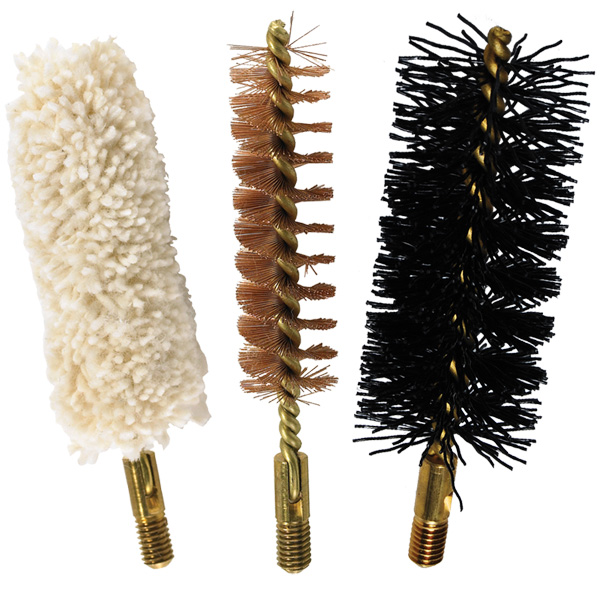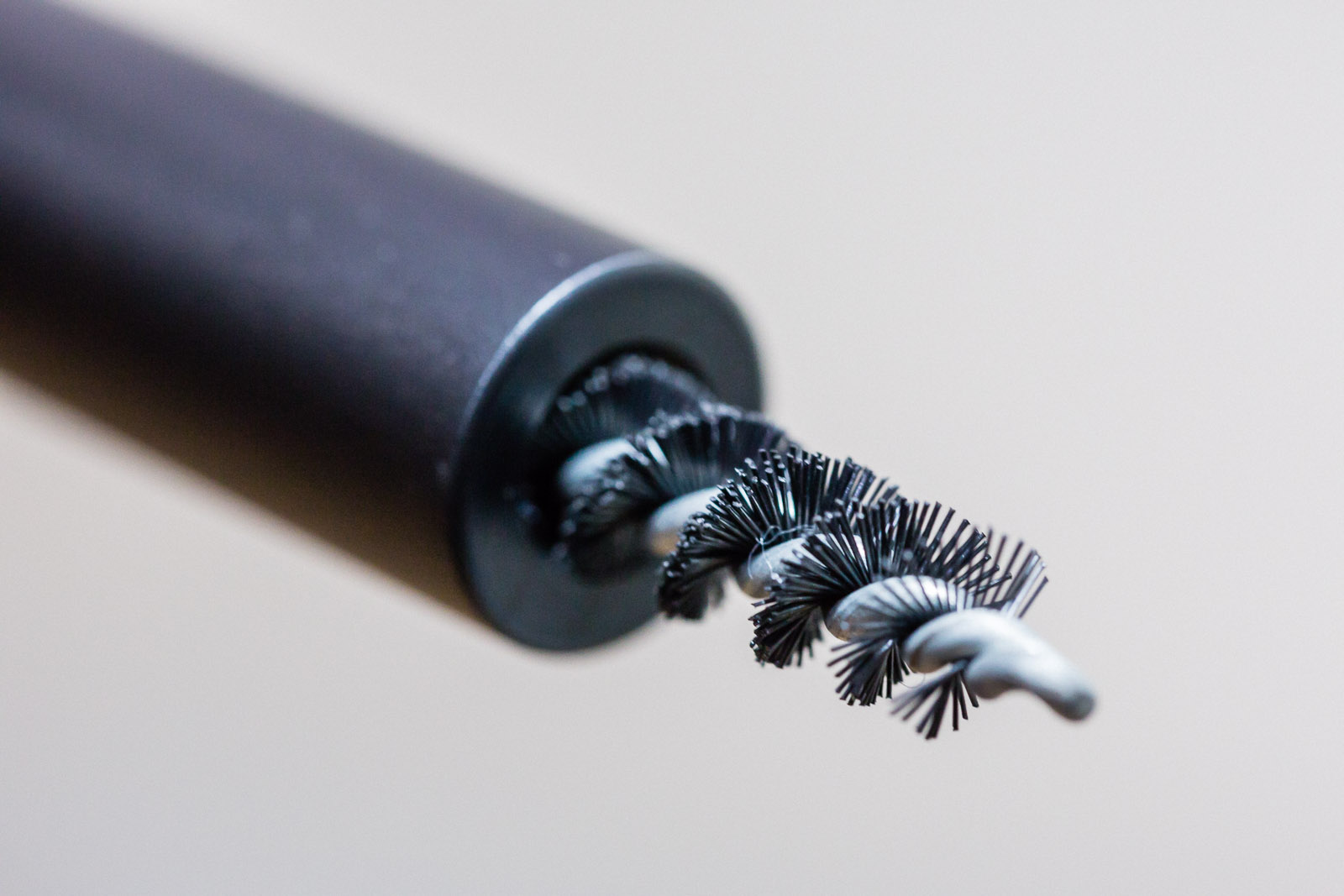
More Controversy – everyone has an opinion on Bore Brushes!
Bore Brushes – like many subjects in the shooting community there are many differing opinions, all seemingly with their own set of evidence and reasoning. A quick browse through the internet will quickly supply you with a confused picture of what is best and why.
The Ol’ School were taught to use brass brushes – part of this harks all the way back to muzzle loaders. Those barrels were scrubbed! As time have changed, firearms as well as the solvents and materials used to clean them, have changed but have we potentially carried on old habits?
Carbon
While copper has become a bit of focus for gun cleaning, it is carbon that we should potentially be more worried about. Carbon is harder than copper, and over time will build up, layering with copper and forming rings in your barrel. A carbon ring is going to create excessive stress (and your barrel will already have enough of that) – and most certainly affect your accuracy and groupings. Because the carbon is often covered with a layer of copper, it’s copper that gets the blame.

These generally form in the throat of the barrel, and carbon deposits can take some work to get out – especially if you haven’t cleaned it for a while. Often, this is where a brass brush and solvents get used. If it’s had the chance to build up, you are also potentially looking at polishing compound. Remember, carbon is right up there with diamond when it comes to hardness.
What is certainly much easier, is regularly removing the deposits before they build up. But this article is on brush types, not cleaning.
Yes. If you let carbon build up in your gun, you are going to need to use a brass brush to try and shift it. Nylon isn’t going to be strong enough, but then, its possible that brass won’t be either!
Some Chemistry – Solvents, Brass and Copper
Once we have addressed carbon, copper becomes our next item of interest. Most bullets have some form of copper jacket on the lead inner. When fired at high velocity through a tightly fitting barrel, some trace of copper is left behind. If this is left, it will build up. Some people will call this a fouling blockage, others with call it a bearing surface – but again, that’s another article.
So, assuming you are going to remove the copper – when you are cleaning out copper fouling, you will often use an ammonia-based product, and ammonia dissolves copper, without affecting the steel.
Brass is an alloy containing Copper and Zinc.
This being the case, using a brass brush could cause two issues – firstly, the solvent being used to clean the copper is also going to attack the brush – wearing it out quicker, as well as tricking you into thinking the barrel has more copper in it that it really does – as the brush itself causes the blue/green marks on your patches. You can clean and clean, but still think you need to do more.
Additionally, copper is much softer than carbon and can generally be removed with a nylon brush – potentially even just with a jag and patch.
So, for copper – use nylon. Less wear on cleaning equipment, less chance of incorrect ‘readings’ when cleaning.
But steel is harder than brass?
Good point.
How does a brass brush scratch a barrel when a bullet flying at 1000 fps does not? If your barrel steel is really that weak – I don’t know if I would want to be shooting through it anyhow.
Many people use nylon because they ‘feel’ that it is going to be scratching the bore less than brass will be. Which is true. But if that is the case, drop the brush all together and just use patches and a jag, or don’t clean at all – that will cause the least damage.
There is a balance between the potential for damage (small to none according the materials science) and actually doing the job. There is no point in babying the barrel if it’s just getting dirtier and dirtier.
While many people are concerned that the steel in a barrel is going to be scratched by a much softer metal, the likelihood, is really low. That steel cleaning rod is probably more of a concern. You are using a bore guide though, aren’t you?
“One material has to be harder than another to scratch it, whether it be steel, minerals or precious stones (diamond trumps everything). Therefore brass and phosphor bronze should not scratch or wear steel, but combined with an abrasion polishing compound and high number of cycles they probably could cause some damage.”
– Frank Fergusion, NZDS
Different tools for different purposes
Really, as I see it, it comes down to this. If you are regularly cleaning your bore out, and don’t generally have much fouling – then nylon is going to be fine. These days, modern solvents are what’s meant to be doing the work – soak the bore, leave it, let the solvent break the carbon and/or copper down, push it out with patches.
If it’s got heavier fouling, you are going to have to use something with additional ‘scrubbing’ power – this may mean nylon, or this may mean brass. Depending on the barrel, your thoughts on how much it is actually going to ‘scratch’ the barrel, and how much of a difference you really think this is going to make in the long run.
Many target shooters are scrubbing the crap out of their bores, sometimes after each shot. Their rifles are sighted in on a clean bore, they shoot on a clean bore and they also replace their barrels more than the rest of us. Wear isn’t necessarily the primary concern. Repeatability is.
Brass or Bronze Bore Brushes?
One last thing – though bronze and brass are often used as interchangeable terms, they are different – even though they perform similarly. Brass is copper and zinc, bronze is copper and generally tin, though other materials are used. The common factor? Copper. What are we often trying to remove with chemicals in a bore? Copper.
“Some barrels need a heavier scrub than others. Some will come clean with little more than a patch. There is no set rule, each barrel is different. Shooters need to understand this. It is up to the shooter to monitor the bore, not just rely on what old such and such said.”
-Nathan Foster, Terminal Ballistic Studies
Did that clear everything up for you? Didn’t think so – and you are not alone – here is just a small selection of conflicting quotes – all from qualified and competent sources…
Greg Tannel, Owner, Gre-Tan Rifles, GTR Tooling
“Let your barrel tell you what it needs. I have some barrels that will clean up with 3-4 wet patches. Other barrels maYour Contenty need scrubbing with JB or USP paste in the throat area. In general though, minimize the use of bronze brushes, and don’t draw them backwards across the crown. I’ve bore-scoped dozens of barrels and I’ve seen that phosphor brushes can cause crown damage and micro-scratching in the bore.”Clay Spencer, Spencer Rifle Barrels
“I’ve never encountered a barrel that doesn’t need to be brushed. A barrel will perform best if it is very clean. You cannot clean the gun properly without a brush and it needs to be bronze.”Bill Shehane, Two-Time IBS 1000-Yard Shooter of the Year, Owner D&B Supply
“I’m cleaning less than ever before, and my barrels are holding up better. I clean every 30-45 rounds, and use nylon brushes (except during barrel break-in). Most of the 1K shooters today have found out that they don’t need to clean every 10-15 rounds.”German Salazar, ShootersJournal.com
“While I use bronze brushes, I don’t make too many passes with them. I don’t try to make a barrel look unfired with my cleaning routine, I simply get it clean enough to make it through the next 70 rounds without losing accuracy due to fouling. My barrel has over 2900 rounds and the accuracy has not deteriorated at all since new.”Tim North, 2003 NBRSA 1000-Yard Champion, President of Broughton Rifle Barrels
“I’ll clean every 30-50 rounds. Don’t draw a bronze brush backwards across the crown. Over time the bristles will fret (degrade) the razor-sharp edge on the crown, which is important for accuracy.”Dan Lilja, Lilja Precision Rifle Barrels
“I think frequent cleaning with bronze brushes is OK. In my experience you’ll get more barrel life cleaning frequently than if you go long intervals between cleanings.”John Krieger, Krieger Barrels
“I’m not a big fan of brushes. I think brushes are more a throwback to the black powder days….We try to minimize their use. On my own guns, even with patches, I’ll try to keep the patch and jag from exiting the muzzle and dragging on the crown. I like to avoid having anything dragging across the crown.”John Brewer, 2004 U.S. F-Class Champion
“I’m not a fan of bronze brushes. I feel that nylon has to be easier on a bore than bronze. When doing a thorough bore-cleaning, I go after the carbon first, then the copper.”Terry Brady, 2005 600-Yard IBS Shooter of the Year
“I use moly and clean every two matches. I don’t brush much, and if I do, I normally use nylon brushes.”Quotes taken from – http://www.accurateshooter.com/technical-articles/barrel-cleaning-debate/





